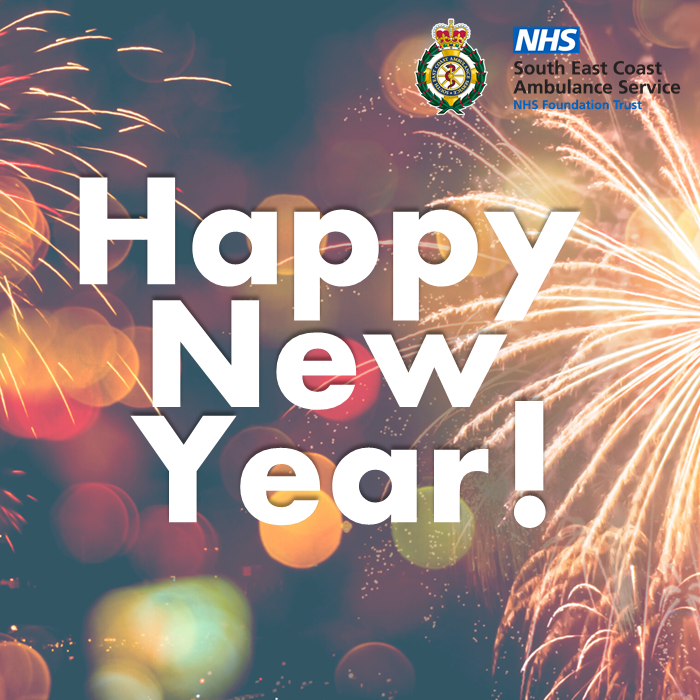
South East Coast Ambulance Service NHS Foundation Trust (SECAmb) would like to thank all its staff and volunteers for their dedication and hard work, not only over the festive and New Year period, but throughout the past year.
It would also like to thank the public for its continued support in ensuring 999 is only used in the event of an emergency.
People are urged to make use of alternatives to 999 including using NHS 111 Online or speaking to a GP or pharmacist for help and advice. This is especially important with pressure on SECAmb’s services and the wider NHS expected to remain high throughout the winter months.
SECAmb Chief Executive, Simon Weldon, said: “Since joining SECAmb some eight months ago, I have been so impressed with commitment shown by our amazing staff and volunteers throughout another challenging year.
“This dedication is even more evident during the Christmas and New Year period when they spend time away from families and friends to keep us all safe and provide vital care.
“I am very proud to lead SECAmb and I look forward to carrying on the work that has taken place over the past year to support all our staff and volunteers in being as best placed as possible to respond to the needs of the communities we serve.
“I thank the public for its continued support and urge everyone to use their ambulance service and wider NHS wisely in the weeks and months ahead.”
People can continue to help SECAmb manage its demand by only calling 999 in a genuine emergency – see ‘When to call 999’ below.
If it’s urgent and cannot wait until normal GP hours resume, help and advice is available via NHS 111 Online at 111.nhs.uk or by calling 111. Useful advice is also available by speaking to a community pharmacist. Local pharmacy opening hours are available here: Find a pharmacy – NHS (www.nhs.uk)
When to call 999:
If you think a patient is suffering from one of the following you must dial 999 for an ambulance:
- heart attack (e.g. chest pain for more than 15 minutes)
• sudden unexplained shortness of breath
• heavy bleeding
• unconsciousness (even if the patient has regained consciousness)
• traumatic back/spinal/neck pain
You should also call for an ambulance if:
- you think the patient’s illness or injury is life-threatening
• you think the illness or injury may become worse, or even life-threatening on the way to the hospital
• the patient needs the skills or equipment of the ambulance service and its personnel
